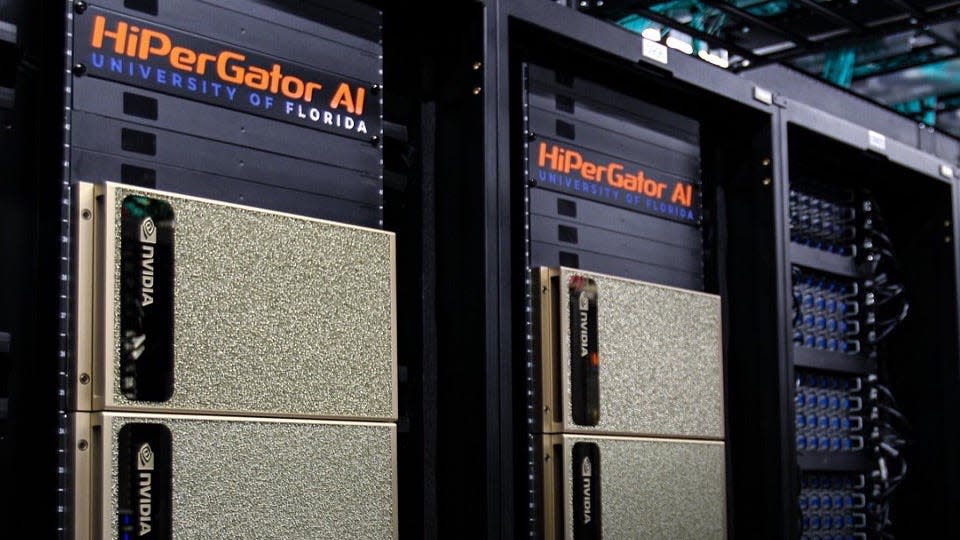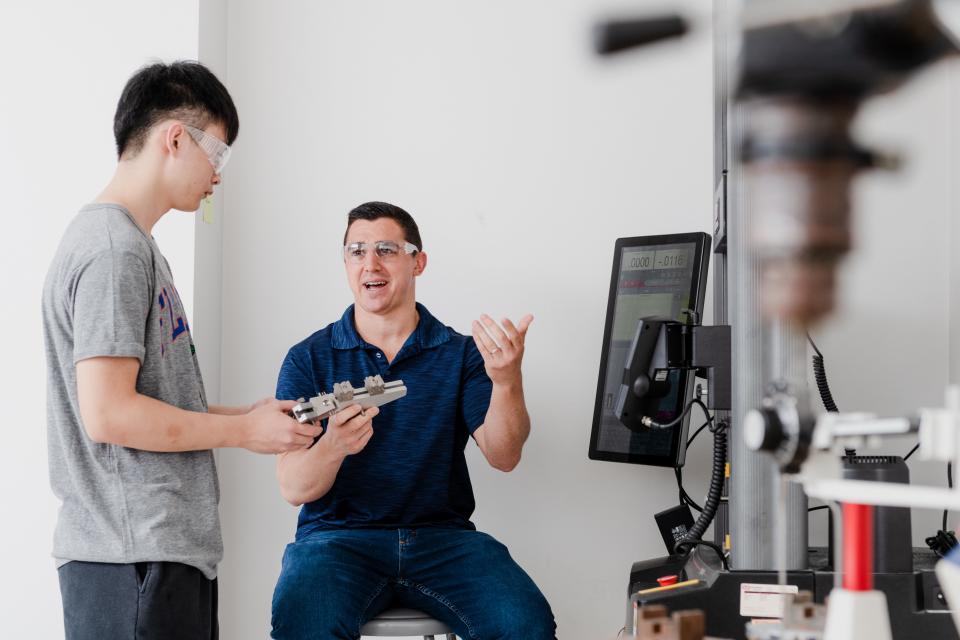At UF, we’ve taken a broad approach to AI — and that will benefit the state and the nation
You’ve probably heard that the University of Florida is building the nation’s first comprehensive artificial intelligence university. You may also be wondering what exactly that means.
Let me explain what we are doing and why and what it means for our students, our faculty, our university and our state.
Artificial intelligence is all around us — from Amazon’s predictions of products you might like to the facial recognition technology that unlocks your cell phone. Companies such as Microsoft, Google and Apple are spending billions on artificial intelligence, but small companies need artificial intelligence, too, if they want to operate efficiently, effectively and maximize their impact.
More: UF/IFAS uses high-tech methods to improve farming practices affecting springs
Another opinion: UF's new AI supercomputer will change how students learn

Yet, the National Security Commission on Artificial Intelligence says the U.S. is woefully behind in training the next generation of AI personnel, the workforce that will ensure our national security and economic competitiveness. We must build an AI workforce quite quickly — by 2025, according to the commission.
So, what are we doing at UF to train this generation of AI experts?
Traditionally, people who are trained in artificial intelligence writ large — whether it’s machine learning or natural language processing — acquire their knowledge through computer science or engineering degrees. We’ve turned this model on its head. We’ve taken AI knowledge beyond those specialized environments and spread it across the entire university.
AI pervades everything we do, from courses UF offers to research our faculty conduct to the university’s own business practices. A few examples.
Students can earn certificates in artificial intelligence by taking three courses that cover fundamentals, ethics — an essential framework to ensure equitable and fair use of this technology — and a final course specific to their major. A student in the School of Architecture, for example, would take a course about the application of AI in the built environment.
Beyond the certificate, we offer 230 courses in AI and data science, with more than 6,000 students currently engaged in these courses.
This allows us to train many more students in artificial intelligence than we could ever do if we kept this knowledge siloed in a computer science department. It also allows students to learn about AI more easily because they are studying it within their major. We think this is a fantastic way to build the workforce of the future.
But there is more. We’ve hired an additional 130 faculty who specialize in artificial intelligence across our institution — from the College of the Arts to the Institute of Food and Agricultural Sciences.

Dr. Dwayne Mitchell from the College of Medicine, for instance, studies pediatric and adult brain cancers. As a world leader in clinical-translational research, his toolbox has gotten more powerful thanks to UF Health’s GatorTron, the world’s first natural language processing model designed to mine data from clinical notes, billions of words, at a speed humans can’t replicate.
This allows researchers to reduce time needed to identify patients to enroll in trials from months to minutes. Faster trials means faster results and, ultimately, quicker paths to treatments and ways to improve lives.
UF researchers are using AI in many other ways: To produce better tasting fruit, identify potential crop damage and create better tourism experiences.
Now, we are not doing this work alone. We have partnerships with such companies as IBM, L3Harris, SAS and Vobile, which is opening an office in Gainesville in part because of UF’s focus on artificial intelligence. And we are working with state partners — the Florida Technology Council and the Florida High Tech Corridor.

And we have an incredible partner in NVIDIA, which gifted us the fastest AI supercomputer at a higher education institution in the U.S. — HiPerGator AI. NVIDIA also created an AI technology center at UF, embedding its engineers among our faculty to assist their research work.
We’ve shared this resource with the other 11 universities in the State University System, allowing them to use it for teaching and research. We’ve also partnered with FAMU, Miami-Dade College and Palm Beach State College to train their faculty so they can provide more AI courses for their students.
We recognize that we cannot wait until students arrive on a college campus to start getting educated about AI. So, our faculty are also working with the Florida Department of Education to develop the nation’s first AI curriculum for public schools.
AI is transforming Florida’s economy into one that is tech driven and high wage, and we want to part of that transformation as a leader and a partner.
David Reed is the director of the Artificial Intelligence Academic Initiative Center at UF.
Join the conversation
Letters to the editor present the opinions of readers on news stories and other pieces published by The Sun. Share your opinions by sending a letter to the editor (up to 200 words) to letters@gainesville.com. Letters must include the writer's full name and city of residence. Additional guidelines for submitting letters and longer guest columns can be found at bit.ly/sunopinionguidelines.
Journalism matters. Your support matters.
Get a digital subscription to the Gainesville Sun. Includes must-see content on Gainesville.com and Gatorsports.com, breaking news and updates on all your devices, and access to the eEdition. Visit www.gainesville.com/subscribenow to sign up.
This article originally appeared on The Gainesville Sun: David Reed: Artificial intelligence pervades the University of Florida

